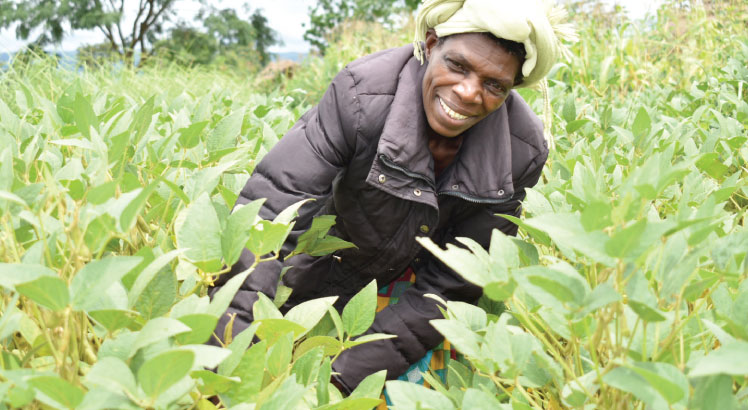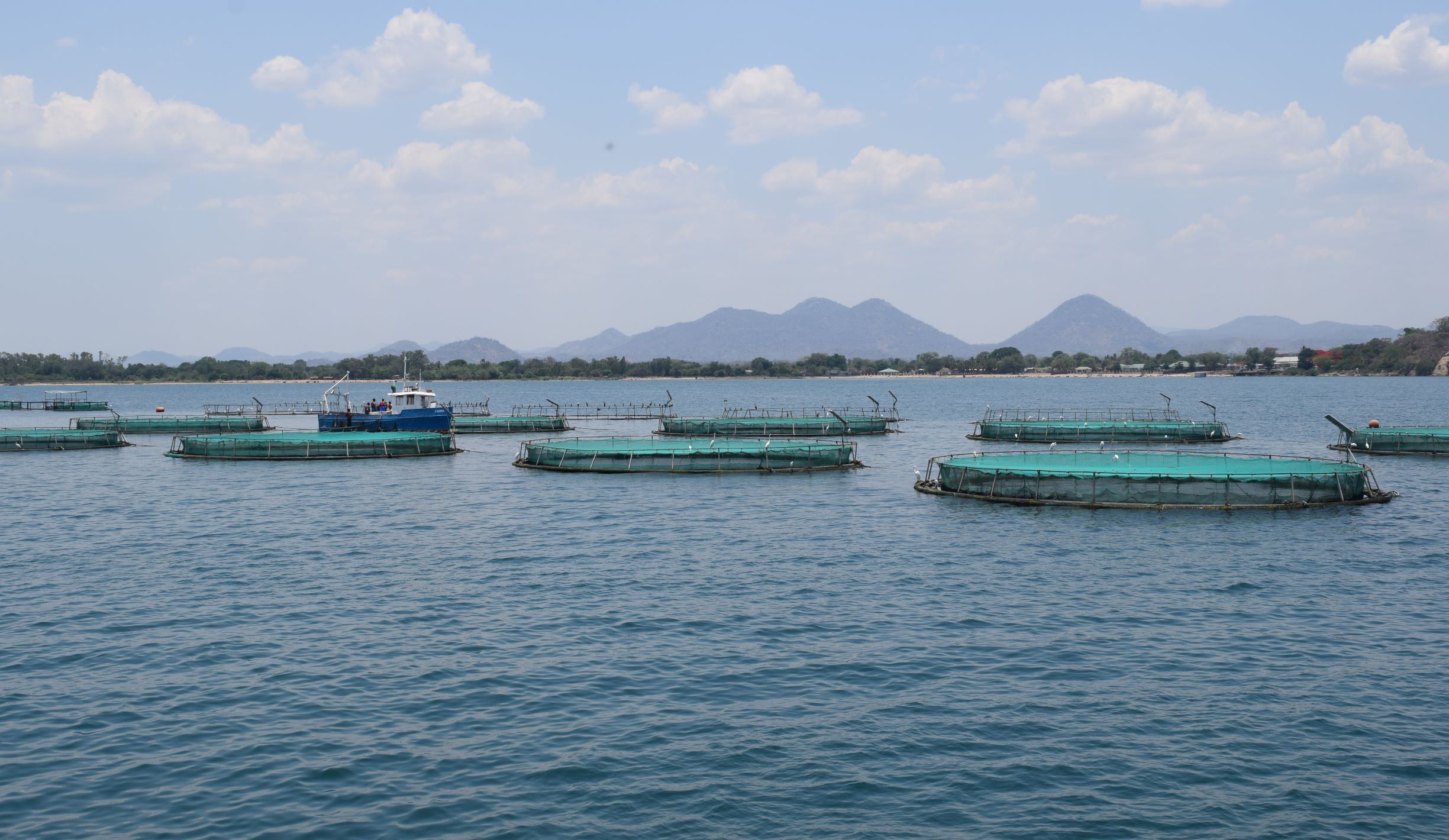Conserving soil forbetter crop yields
P
erennial drought made it hard for Ruth Lamya of Lusinje Village in Ntcheu District to produce enough maize for her family of seven.
“Prolonged dry spells often scorched the crop just when it was tasseling,” she states. “As a result, I seldom yielded enough to take us to the next harvesting season.”
Lamya, a mother of four, grappled with hunger like many in her drought-prone territory in Traditional Authority Tsikulamowa.
For years, she harvested six bags of maize from a two-acre field with the potential to produce 120.
Rampant environmental degradation makes Malawi vulnerable to climate-related disasters that trap millions in perennial hunger and poverty, reports the World Food Programme.
“Falling yields became unbearable as droughts and prolonged dry spells intensified, worsening hunger and poverty as food prices skyrocketed,” says Maliko Mwale.
However, the two farmers’ harvests have been on the rise since 2020.
Lamya’s maize yields jumped six-fold to 30 bags while Mwale harvests 29bags, up from five.

The pair personify the gains from Tipindule Farmers’ Field School under the Malawi Watershed Services Improvement Project (Mwasip) funded by the World Bank in partnership with the Malawi Government. The farmer-to-farmer approach promotes sustainable agricultural practices that help rural farmers yield more from their small and degraded fields while conserving soil and the environment.
The group of 29 has embraced integrated improved farming methods to restore natural resources and improve crop yields as well as livelihoods amid climate change. These include manure-making, crop diversification, tree-planting and natural forest regeneration.
They also create check dams, trenches, stone bunds, swales and eyebrow basins to restore and conserve degraded watersheds, including highly eroded slopes, bare spaces and gullied crop fields in the catchment of Likudzi River.
Lamya, 58, says restoring land and application of manure have built their crops’ resilience to scorching weather conditions.
“My harvest has increased. Even if drought occurs while maize is tasseling, I am not worried because the ridges and trenches across the slopes as well as manure hold enough soil moisture and nutrients for the crop,” she says.
Manure use has also reduced the farmers spending on chemical fertiliser which harms their soil.
“We have weaned ourselves from scarce fertilisers which now cost a fortune,” she states.
Mwale says the field school challenged the rural farmers to broaden and diversify their diets.
“We realised that cassava and sweet potato can save us from hunger if maize fails. We diversified our crops that we do horticultural ones to sell to get money to support our children and do development projects at homes,” he says.
Dayna Moffat says field-based learning helped them deal with fall armyworms in her maize field.
“Our farm-based research showed that neem leaves kills the devastating armyworms that almost halved our maize yields,” she says.
To scale up efforts to restore degraded landscapes for enhanced food security, livelihoods and income, the farm field school received K20 million for poultry business.
Each farmer group receives $5 000 to $25 000 from Mwasip’s $53 million matching grants.
Entrepreneurs with farm-based enterprises get between $25 000 and $50 000.
The grants target Balaka, Machinga, Zomba, Neno, Ntcheu, Mangochi and Blantyre districts in the Shire River Basin.
Thanks to the grant, Tipindule Farmers’ Field School is constructing two poultry houses to be completed by May.
Lamya is pleased that her group that lacked capital and stable markets can now do business instead of selling her produce to vendors at low cost.
She says: “The project gave us business management training and K20 million for poultry farming.
“Our goal is to supply Ntcheu with eggs and chickens,”
Memorata Investments received K41 million as an off-taker of the emerging poultry enterprise.
Its managing director Bettie Ndau says the funding from Mwasip has boosted her restaurant and farm produce businesses.
“I offer the farmers a steady market for their produce such as eggs, chickens and maize. The funds have increased my capacity to meet demand of maize flour that I supply to Cobbe Barracks in Zomba,” she explains.
Ndau plans to buy a maize mill to boost value- addition and a lorry to lessen transportation woes.
Ntcheu District Council agribusiness officer Bridget Chamdimba envisages the project increasing farmers’ crop yields and agribusiness.
She explains: “The interventions have helped farmers in Manjawira Extension Planning Area to deal with drought that frustrated their crop production efforts for years.
“They are now food secure, with plenty of surplus.”
Mwassip technical team member Osward Mulenga says the initiatives are designed to improve agriculture-based livelihoods while conserving the environment in the targeted areas.





